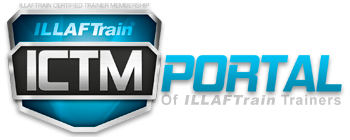Thinking Muscles - Improvement of Reception Level
Course id: 1180
Duration: 3 Day/ 5 H per day
introduction
If our age is the age of information, we are deeply in need to have this information correct, accurate, clear and objective. The fifth part of the "Thinking Muscles" Program presents to you many of the thinking skills that help you to purify this information, handle it correctly, and know how to use it for reaching a more sound thinking.
Prerequisites
The participant does not need to have a certain specialization.Audience
The young boys and girls between 10 - 18 years old who seek to possess skills that support and activate their thinking.
The guardians who have the desire to enrich the thinking of their children and to develop their mental potentials.
The teachers who aim at affording benefit to their students and to raise their educational levels.
Objectives
At the end of the Course, each Trainee will become able to comprehend and apply a number of skills which help him to:
-
Handle the information given to him or collected by him, and evaluate it.
-
Select and ask the suitable kind of questions.
-
Recognizing the emotions involved in thinking.
-
Purify his thinking and free it from the information errors through examining the information and filtering it before adopting it.
-
Summarize and simplify the information when necessary.
-
Determine the resources of his beliefs and convictions.
-
Determine the solution keys in the various attitudes and problems.
Content
The First Day:
-
Introduction.
-
The ten muscles which are:
-
Determining the existing and lacking information in a certain attitude.
-
Asking the suitable questions in the suitable attitudes.
-
Guiding to solutions through specific keys.
The Second Day:-
Recognizing the contradictions and wrong conclusions in talk.
-
Laying the expectations depending on the available information.
-
Determining the resources of the beliefs and convictions, and how to control them.
-
How to use the ready opinions and judgments which we receive.
The Third Day:-
Separating and determining the emotions and showing their effect extent on thinking.
-
Determining the values, assessing and arranging them.
-
Simplifying the meanings and illustrating them according to need.
-
-
Conclusion.

